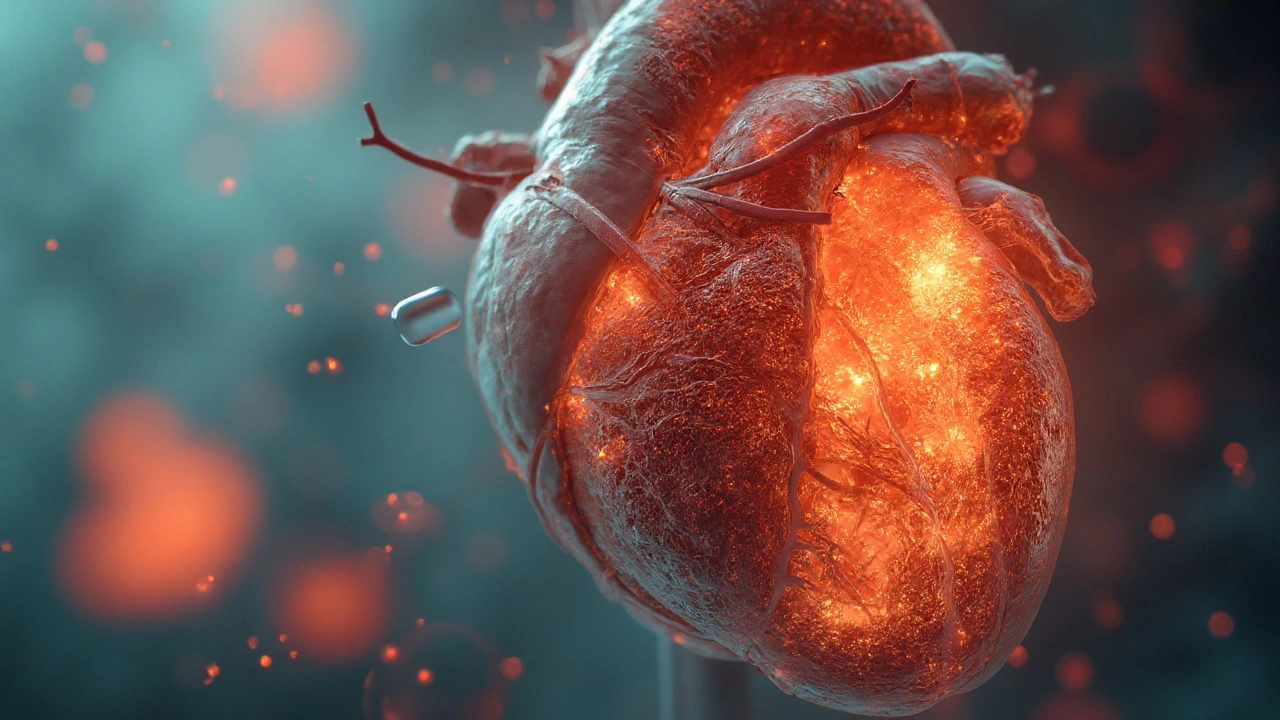Ever wonder why your heart beats about 70 times a minute while you’re at rest? It’s because that little muscle is constantly pumping blood, delivering oxygen, and clearing waste. When the heart works well, you feel energetic; when it struggles, fatigue, shortness of breath, or swelling can show up. Understanding the basics helps you make choices that protect that vital organ.
The heart has four chambers—two atria on top and two ventricles below. Blood returns to the right side, gets pushed to the lungs for oxygen, comes back to the left side, and then the left ventricle forcefully sends it through arteries to every cell. This cycle relies on smooth muscle walls, proper electrical signals, and clear blood vessels. Anything that narrows arteries, raises blood pressure, or disrupts the rhythm can slow the flow and make the heart work harder.
Most people think you need a gym membership to help your heart, but everyday habits do the trick. A brisk 30‑minute walk, climbing stairs instead of the elevator, or dancing to your favorite song all raise the heart rate enough to improve circulation. Pair that with a diet rich in fruits, veggies, whole grains, and lean proteins—you’ll keep cholesterol in check and cut down on inflammation.
Speaking of cholesterol, many readers ask whether they need medication. Drugs like generic Lipitor (atorvastatin) lower LDL “bad” cholesterol, easing the strain on arteries. In 2025, PCSK9 inhibitors have entered the scene, offering powerful drops in cholesterol for people who can’t reach goals with statins alone. If your doctor mentions these options, they’re targeting the same goal: keeping blood vessels clear so the heart doesn’t have to pump against resistance.
Blood pressure is another piece of the puzzle. Even a small reduction—from 140/90 to 130/80—can dramatically lower the risk of heart failure. Lifestyle tweaks such as cutting back on salty snacks, limiting alcohol, and managing stress work hand‑in‑hand with antihypertensive meds if you need them.
Don’t forget sleep. Poor sleep raises stress hormones, which can tighten blood vessels and raise heart rate at night. Aim for 7‑9 hours of restful sleep; a consistent bedtime routine helps your body regulate blood pressure naturally.
Finally, keep an eye on warning signs. Unexplained chest tightness, sudden shortness of breath, or swelling in ankles can point to the heart struggling. If any of these pop up, see a healthcare professional right away—early detection saves lives.
Bottom line: Your heart runs on a mix of good blood flow, manageable cholesterol, steady blood pressure, and ample rest. Simple daily actions—moving more, eating smart, sleeping well, and checking in with your doctor—keep the pump in top shape. Whether you’re considering a statin like Lipitor, a newer PCSK9 inhibitor, or just want to fine‑tune your lifestyle, the goal stays the same: a strong, efficient heart that powers every part of you.

Explore how trimetazidine improves heart function in cardiac patients by shifting metabolism, reducing ischemia, and complementing standard therapies.
